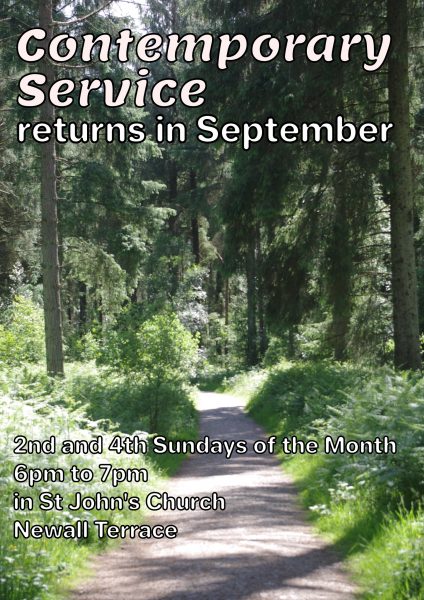
Love is one of the most popular topics covered not only in books, but also in movies and music. Love is a universal, multi-faceted theme that’s been explored in a number of ways throughout the history of literature. We see this theme in Shakespeare’s sonnets on love, and his plays, like Romeo and Juliet. I guess we all have our favourite love movies, poems and
books. My favourite love movies are “Sense and Sensibility” and “Love Actually” and my favourite love song is Bryan Adams “Everything I do, I do it for you” and whilst my favourite love poems are “How do I love thee” by Elizabeth Browning and “When you are old” by William Butler Yeats, I am also drawn to our local bard Robert Burns who wrote.
O my Luve is like a red, red rose
That’s newly sprung in June;
O my Luve is like the melody
That’s sweetly played in tune.
So fair art thou, my bonnie lass,
So deep in luve am I;
And I will luve thee still, my dear,
Till a’ the seas gang dry.
It is hard to resist a love poem or song. Even in church we read love songs. It doesn’t seem likely, yet here it is: right smack in the middle of the Hebrew Scriptures, tucked in between the rather dour philosophy of Ecclesiastes on the one hand, and the magnificent, epic prophesy of Isaiah on the other. A love song… actually, a collection of love songs… actually, the most excellent of love songs, the Song of Songs, as it’s called.
The lectionary dares to offer us a glimpse into this book just once every three years. Maybe there’s some anxiety about such a frank text making its way into our worship any more frequently than that. The Song of Songs has been inspiring controversy for at least two thousand years. Just after the time of Jesus, late in the first century CE, there was evidently a fight among the rabbis as to whether it should be included in the Bible at all. The detractors had a number of concerns. First, there is not a single mention of God in the entire book, rare for books in the Bible, though not unheard of. Second, the subject matter of the book is such that, even as it was being used in worship on the Sabbath and at the end of Passover, it had also found, shall we say, a more rowdy, secular audience.

And third, the Song of Songs contains what one scholar has called “the only unmediated female voice in all of Scripture.” Throughout much of this book, a woman speaks, and she does so in a way that is forthright, and sensuous and assertive. This was, to say the least, a departure from accepted tradition.
And yet, the detractors did not win the day. The Song of Songs has found a home in the Scripture of both Jews and Christians. So, we must believe that the rabbis found, in the end, something edifying here, something uplifting. This book has something to teach us about the life of faith. This book, for Jews and Christians, is a part of God’s word, contains God’s word to us, and it is a book made up of love songs.

There is a deep and wide tradition of interpreting the Song of Songs as being, not about human, romantic love at all, but, rather, being about the love between God and people—Yahweh and Israel, or Christ and the Church. And… there is truth in that! But I don’t want to rush away from what is right there in front of us. This is a book that celebrates human, romantic, physical love. In detail-it is about longing, and passion. Hear the breathless anticipation of the woman as she waits for her love:
The voice of my beloved! Look, he comes,
leaping upon the mountains, bounding over the hills.
My beloved is like a gazelle or a young stag.
Look, there he stands behind our wall,
We can hear it in the lyrics: her heart is racing; she can barely stand the waiting. She is listening with rapt attention for the voice of her beloved… we feel that when she hears it, she will be in ecstasy. And then, finally, she does hear it. And here is what he says:
“Arise, my love, my fair one,
and come away;
for now the winter is past,
the rain is over and gone.
The flowers appear on the earth;
the time of singing has come,
and the voice of the turtledove is heard in our land.
The fig tree puts forth its figs,
and the vines are in blossom;
they give forth fragrance.
Arise, my love, my fair one, and come away. ~ Song 2:10b-13

The voice of her beloved entices her to rise and come away: he woos her with images of spring… the time of birth, of blossoming, of newness and beauty. He appeals to her senses, inviting her to enjoy all that is delicious and fragrant, the veritable season of love. There is a sense that the lovers anticipate a deep connection as they focus solely on one another. Our passage is like a little duet: first the woman sings, and then the man. She calls and he responds. It is so clearly a song of love, intimate, human, passionate. So… once again, what is it doing in our church cannon?
The presence of these lyrics as part of our sacred story indicates to us, in no uncertain terms, that God smiles on love. It is a good and beautiful part of God’s creation. Do you have any doubts as to what the woman replies to this invitation? Of course not: Arise, my love, my fair one, and come away. We know it in our bones, without even reading the rest of the story… she rises, she goes. There is no other possible ending.
Even God loves a love song. But even more fundamentally than that, God loves us in all our humanity, in all our physicality. There is no sign in this book that God harbours any negative feelings about human beings, including our bodies. On the contrary: God, who created us, continues to call this creation “good.” Still, there is more to this text than the straightforward reading of it. Gorgeous, sensuous love lyric though it may be, throughout Jewish and Christian history, people of faith have found other treasures in the Song of Songs. After all, haven’t the stores of God and God’s people always commenced with the kind of invitation we find in love song?
Now the Lord said to Abram, “Go from your country and your kindred and your father’s house to the land that I will show you.” Arise, my love, my fair one, and come away.
As Jesus passed along the Sea of Galilee, he saw Simon and his brother Andrew casting a net into the sea—for they were fishermen. And Jesus said to them, “Follow me and I will make you fish for people.” Arise, my love, my fair one, and come away.

Time and again, God calls us, and we need to listen for that call. It seems only natural that people of faith throughout the centuries have read these words and recognized in them the intimacy and the power of God’s call on us, God’s beloved people. Arise, my love, and come away. God says it to us, again and again. Our task is to listen.
Listen -that is what catches our attention, along with the poetess, at the beginning of the poem. Listening implies a certain posture of readiness; not being so self-involved or fixated on a task at hand that we become oblivious to the world around us. To listen to another person is one of the greatest gifts we can give one another. Rather than just waiting to insert our opinion, when we are truly listening, we are setting our own egos aside and are fully engrossed in accepting the gift of what someone else has to say to us. In a moment, our listening affirms that person’s self and says “I care about you. I’m here.” It is the most powerful relationship tool we can have with each other, yet it is one of the most difficult ones to maintain in the midst of all the noise around us.
In the case of our faith, listening for God’s voice can feel like a daunting task. It is awkward and confusing as we try to discern which is God’s voice and which are the voices around us. Nevertheless, we are called to listen for it, attentively, prayerfully. To do so well means engaging in a deep relationship with our Creator. The more we spend time in conversation with God, otherwise known as prayer, and the more we engage with God’s Word as revealed in Scripture, the sooner we begin to pick up on the whispers of God’s voice around us. Listening, with those we love, and with God, is an activity marked by relationship. Even before we are able to see what is coming, we hear the voice of our beloved.
When this happens, we cannot help but look. Our energy picks up and we begin to scan the horizon in anticipation of love’s light breaking through. To look as a follow up of listening means that we truly “see” one another, not just on a surface level, but in deep real ways that encompass the whole spectrum of emotions and experiences. Looking involves both an awareness of the past, an honest analysis of the present, and even the ability to begin to imagine the possibilities of the future. It is seeing things as they have been and are, but in a way that is mindful they don’t always have to be that way.
“Look, he comes, leaping upon the mountains, bounding over the hills. My beloved is like a gazelle or a young stag.” If this small passage has anything to teach us about our relationship with God, about our life in faith, perhaps it is in the breathless anticipation of the woman as she awaits her beloved. I wonder… how can we prepare ourselves so that we are just as eager, just as breathless to hear God’s invitation to us?
REFLECTION
Reflect on God’s love for you
How do you listen for God’s voice?
In what ways this past week have you experienced God’s love?
In what ways have you shared his love with other?
HYMN O the love of my God is the essence
PRAYER
Holy God, love is your name,
and you call us your beloved.
As we receive your love,
fill us with the power to listen
for your call;
to look for the ways
you come to us
and to be ready to arise
and embark on an abundant life with you
that is rich in service and love. Amen






